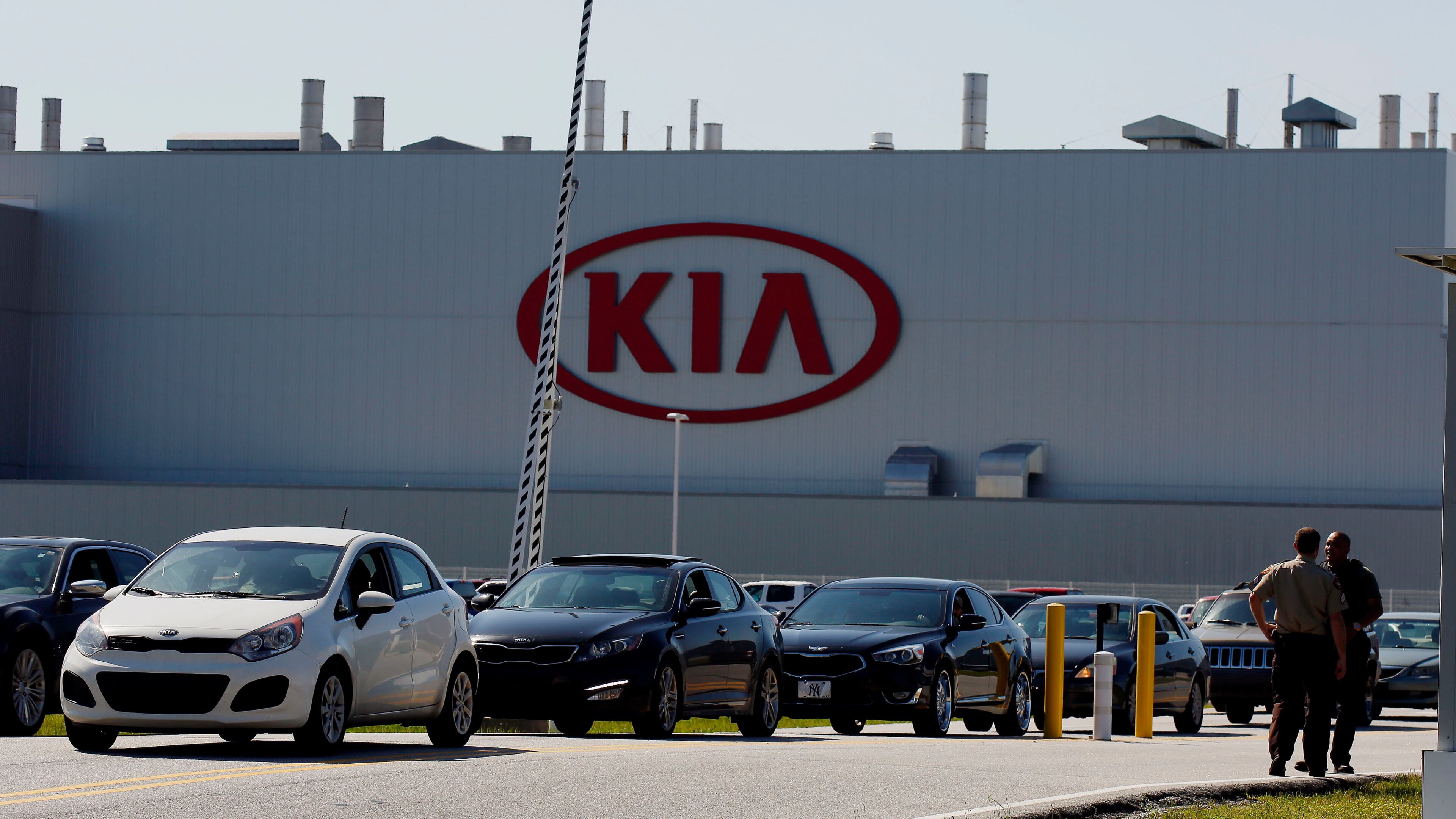Apple’s self-driving electric car project could call Georgia home

The Apple Car could become the Peach State’s next big export.
If Georgia is picked to build Silicon Valley giant Apple’s self-driving electric vehicles, it could mean lots of new jobs, a big boost to tax revenue and a burnishing of the state’s reputation as a tech hub.
But it’s far from a sure thing. Self-driving cars could still be many years away from gaining traction. If they do, there’s no guarantee the maker of iPhones will be at the head of the pack.
Apple also hasn’t confirmed its planned foray into automobiles will start here.
Still, it could be a big deal.
Gov. Brian Kemp said Thursday he welcomed the possibility that Apple will set up production with Kia Motors to manufacture Apple-branded vehicles at the Korean company’s assembly plant in West Point.
“Kia’s commitment to excellence and its strong partnership with the state only strengthens Georgia’s status as a leader in technology, innovation and manufacturing,” said Kemp in a nod to media reports.
CNBC reported on Wednesday that Apple was close to finalizing a deal with Kia to produce Apple-designed vehicles at the West Point plant in Georgia. Apple will invest $3.6 billion in the venture with Kia, which will start operations in 2024, Bloomberg reported, citing a Korean news agency.
State economic development officials with direct knowledge of discussions stressed to The Atlanta-Journal Constitution that no agreement has been finalized.
Rick Douglas, a West Point-based spokesman for Kia, declined to comment Thursday. Apple did not respond to requests for comment.

Georgia is in a good position to land the project, economic development experts said.
For one, metro Atlanta has become a major tech hub. Two local companies placed in the top ten rankings in the 2020 Deloitte North American Technology Fast 500 report. Atlanta has become one of the top spots for Black technology workers. And Microsoft has expanded its presence in the city and will open a new office at Atlantic Station.
Georgia may have only one car-manufacturing plant, Kia’s West Point, which opened in 2009. But the state has a growing presence in the automotive ecosystem, which has shifted from the Midwest to the Southeast.
SK Innovation is building a $2.6 billion plant on I-85 near Commerce to make batteries for electric vehicles made by Ford and Volkswagen, one of the largest economic-development projects in state history.
A cluster of suppliers to Kia have opened near the plant. Mercedes-Benz and Porsche maintain their North American headquarters in metro Atlanta. Atlanta-based Cox Enterprises, which owns the AJC, is a major player in the automotive industry.
Georgia also has extensive infrastructure to support automakers’ transportation and shipping needs. The Port of Savannah is one of the largest ports on the East Coast and has gained market share after its channel was deepened to handle larger ships. Hartsfield-Jackson International is the world’s busiest airport. In between are major highways and railways.
The state funds research and development for the automotive industry. The Georgia Tech Manufacturing Institute has conducted engineering studies for Ford and Michelin. The city of Peachtree Corners opened a test track for autonomous vehicles in 2019.
And Georgia has been aggressive at chasing economic-development projects under Kemp and former Gov. Nathan Deal. The state provides generous tax incentives and touts Georgia’s lack of labor unions and regulations as ways for companies to save money. Area Development magazine, a trade publication, has named Georgia the “top state for doing business” for seven consecutive years.
Apple would save money and time by avoiding the need for environmental studies and other permits and approvals since the West Point plant is already open.
“A lot of the risks and question marks will have been taken out,” said John Gornall, an economic development attorney at Arnall Golden Gregory who isn’t involved in the talks.
Car and Driver magazine said it would make sense for Apple to partner with Kia instead of building a manufacturing business itself. Apple would supply software, battery technology and the car’s design, and Kia would handle engineering and mechanical issues. Apple has similar partnerships to manufacture its smartphones.
Electric vehicles appear to have a bright future. General Motors said last month it will phase out gas-powered cars by 2035. The stock market capitalization of Tesla, a fast-growing electric vehicle maker, recently topped $800 billion. The Biden administration has made climate-change policies a top priority.
There still is no consensus on when, or if, self-driving vehicles will take hold. The technology that supports self-driving vehicles can’t handle unexpected obstacles, like a dog running in the road, said Brian Johnson, who manages Peachtree Corners’ test track.
“We have awesome technology for autonomous vehicles, but the real world is full of curveballs and it’s hard for computers to handle those,” he said.
Regulatory and technological hurdles also remain before fleets of fully autonomous vehicles hit the nation’s streets. The Coalition for Future Mobility, a trade group, last year urged Congress in a letter to set policies that ensure “rigorous safety standards for continued development and safe deployment of (automated vehicle) technologies.”
Eric Tanenblatt, who was chief of staff to Gov. Sonny Perdue, sees a roadmap. He expects self-driving trucks to lead the way, before self-driving cars become commonplace, and that the process could take as little as four to five years.
“Self-driving cars are a lot closer than many people think,” said Tanenblatt, who leads the autonomous vehicles group at law firm Dentons.
- Staff reporters Greg Bluestein and J. Scott Trubey contributed to this article.


